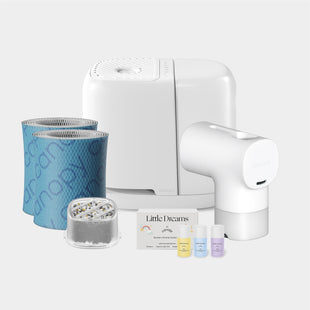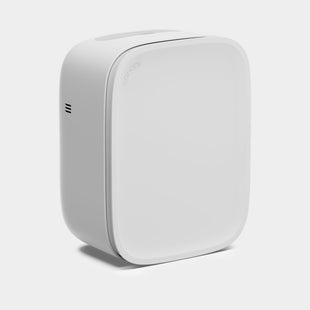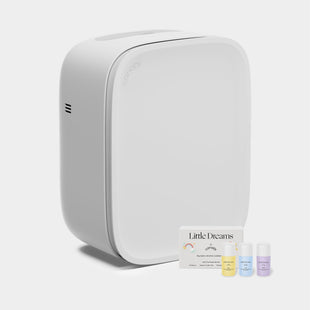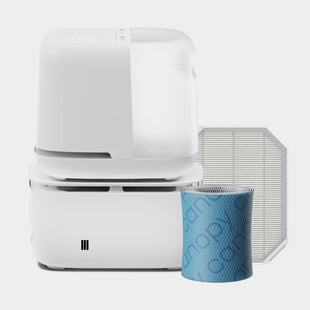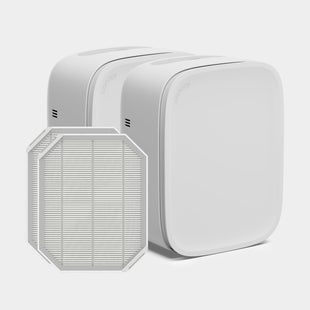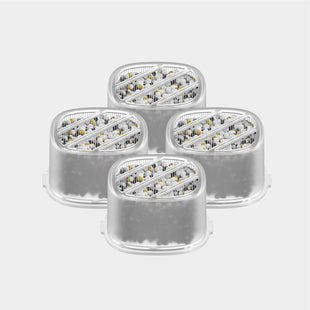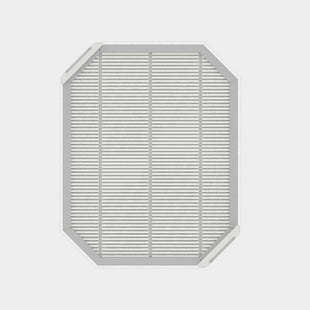Air purifiers are increasing in popularity for household use as we learn more about the harmful byproducts of our everyday home activities. While using an air purifier for mold or post-construction purification are more common, you may wonder whether you can use an air purifier for smoke removal.
Short answer: yes, definitely. We review the major benefits of air purifiers for smoke removal, how air purifiers work to remove smoke from your home or office space, the best type of air purifier for smoke removal, and how to properly maintain your air purifier.
What Are the Benefits of Air Purifiers for Smoke Removal?
Smoke from cigarettes, cigars, and pipes is laced with thousands of chemicals (including ammonia, arsenic, carbon monoxide, and formaldehyde to name a few) that are incredibly harmful to the human body, whether inhaled through the act of smoking or inhaled through secondhand smoke.
Using an air purifier for smoke can dramatically improve the quality of air in your home if you, a member of your household, or a neighbor from an attached home unit smokes. There are many benefits of incorporating an air purifier in your home, especially when introducing an air purifier in your home for smoke removal.
Safer Environment for At Risk Demographic
If you or someone in your home has a pre-existing lung or heart condition, if you frequently suffer from respiratory infections, chronic rhinitis, or asthma, secondhand smoke can exacerbate symptoms or experience adverse health effects.
An air purifier can filter smoke created or brought into the home reducing potential triggers for at risk demographics. Additionally, reducing or eliminating exposure to secondhand smoke can improve chances of survival for those who are suffering from lung cancer.
Safer Environment for Pregnant Women
Inhaling secondhand smoke frequently or regularly when pregnant can cause miscarriage, premature birth, low birth rate, and interfere with your child’s cognitive and behavioral development.
When introducing an air purifier into your home space, you can rest assured that you will breathe clean, healthy air for both yourself and your unborn child.
Safer Environment for Children

Between 150,000 and 300,000 lower respiratory tract infections in infants and children younger than 18 months are a result of secondhand smoke according to the American Lung Association. Of these respiratory tract infections in young children and infants, between 7,500 and 15,000 result in hospitalizations. Additionally, secondhand smoke is responsible for 430 sudden infant death syndrome (SIDS) cases per year.
air purifiers will reduce your child’s chances of developing a respiratory tract infection, improve their lung development, and reduce their chances of death from SIDS from smoke exposure.
How Do Air Purifiers Work to Remove Smoke Particles from Your Home?
Now that you know the benefits of air purifiers for smoke, you may wonder how exactly an air purifier removes smoke from your home, office, or personal space. How the air purifier functions depends on the filtration system in your device.
HEPA Filters
HEPA filters can capture up to 99.97% of the hardest to filter particles in your home. The HEPA filter works similar to a sieve, but on a microscopic level. The air purifier draws air from the room into the device and passes it through the interwoven fibers of the HEPA filter. Particles 0.3 microns and larger, including cigarette smoke, are trapped in these fibers while any particles less than 0.3 microns flow right through the filter.
Carbon Filters
While the HEPA filter is comparable to a sieve, the carbon filter is like a magnet. Carbon filters attract particular matter (PM) from the air flowing through the device, and trap the contaminants to the surface of the carbon filter. Carbon filters are particularly effective for trapping odors, which is a major draw of this method of filtration.
What Type of Air Purifier is Best for Smoke Removal?

While choosing the best air purifier for your home is dependent on a variety of factors, choosing the best air purifier for smoke, specifically, has its own requirements.
Air purifiers with HEPA filters, carbon filters, or ionizer air purifiers each have their own unique benefits and can effectively purify the air in your home. However, if you are searching for an air purifier that can effectively eliminate smoke contamination from your home, you will need a hybrid air purifier.
A hybrid air purifier is a device that integrates two types of filtration mechanisms to offer a robust air purifying experience. An air purifier with both HEPA and carbon filters will effectively remove both smoke contamination and smoke odor from your home for well-rounded smoke removal. The HEPA filter on your hybrid air purifier will capture particles as little as 0.3 microns in size (smoke particles are 0.3 microns) and the carbon filter will absorb smoke odor and volatile organic compounds (VOCs) that slip through a HEPA filter.
How to Maintain an Air Purifier
Proper air purifier maintenance is largely dependent on the type of filter you have in your device. air purifier maintenance includes either filter replacement or deep cleaning your device’s reusable filters.
Adhering to your device’s required maintenance schedule will ensure your air purifier functions at an optimal level for maximum air purifying benefits.
Disposable Filters
If your device has a disposable HEPA or carbon filter, you will need to replace this filter on a regular schedule.
A general rule of thumb (though dependent on frequency of use) is to replace carbon filters every 3 months and HEPA filters every 12 to 18 months. If your disposable filter is starting to yellow or show signs of discoloration, this is a good sign that you need to replace your filter. Your device may have a filter replacement indicator, in which case, you can adhere to the device prompt when indicated.
Reusable Filters
Reusable filters, on the other hand, require a regularly scheduled manual cleaning to maintain maximum efficacy. In order to safely and effectively clean your reusable filter, you must reference your device manual for instructions. Some air purifier reusable filters will need to be vacuumed carefully with a brush attachment while other filters may need a 10 minute soak in a mild detergent.
If your air purifier does not indicate cleaning frequency, it is recommended that you deep clean your air purifier every three months and replace damaged or worn filters from the manufacturer as needed.








